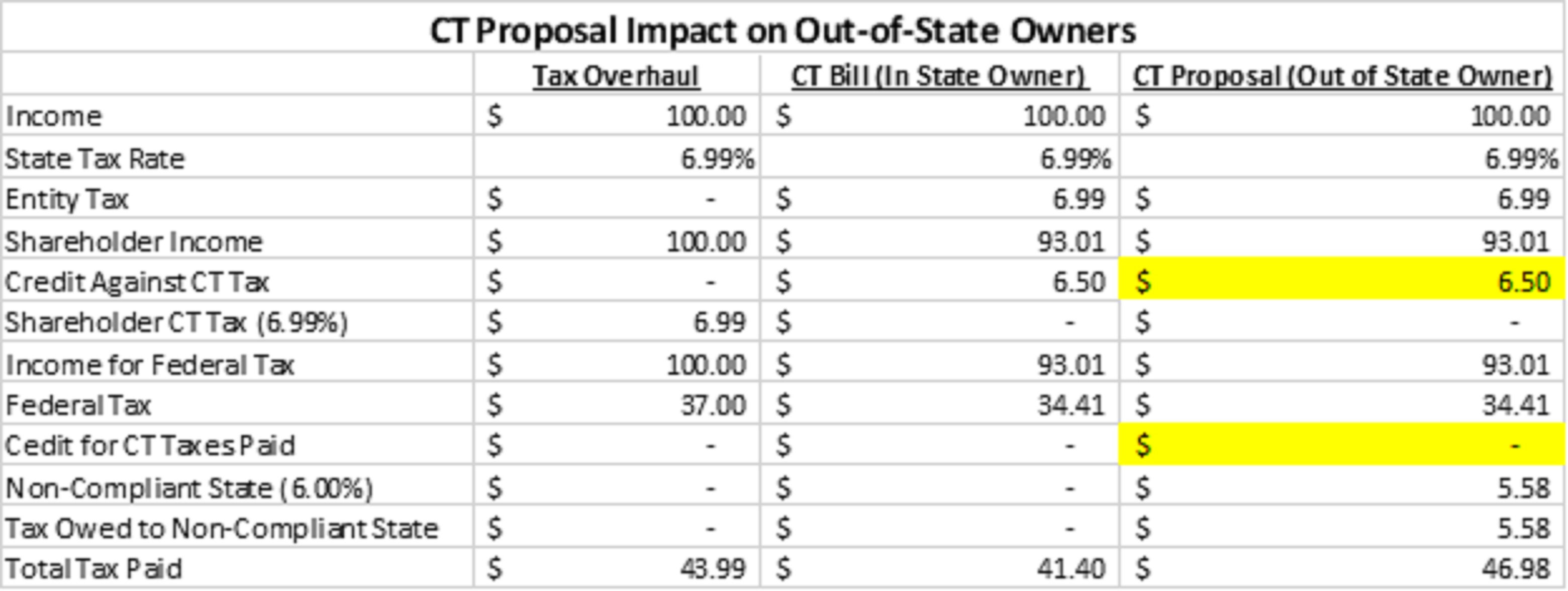When the dust settled on last year’s tax overhaul, pass-through businesses were confronted with new rules for deducting State and local taxes – if they paid the taxes at the entity level, they could deduct them. If the taxes were paid at the owner level, they could not.
So, S-Corp asked, “Why not give Main Street businesses the option to pay state and local income taxes at the entity level?” That would preserve their ability to deduct those taxes and make the adopting state that much more attractive to Main Street employers. Moreover, the tax overhaul allows C corporations to deduct these taxes as legitimate business expenses, so parity demands that S corporations and partnerships deduct them too.
As we reported previously, the folks in Connecticut had the same idea and they adopted it just Wednesday night. As described in the local press:
The bill would ensure Connecticut remains competitive under the new federal tax regime, Barnes said, by “establishing a revenue neutral tax on pass-through entities offset by a personal income tax credit that will provide Connecticut’s small business owners with favorable federal tax treatment.”
“If all such income is taxed at the maximum federal rate of 37 percent, this proposal would shield an estimated $600 million from federal taxation and would thereby return an estimated $222 million to Connecticut taxpayers,” Barnes testified.
This reform was supported by the Connecticut Business and Industry Council and it now heads to the Governor’s office for his signature. Since Governor Dan Malloy was the one who originally proposed the Connecticut SALT fix, the chances are good he’s going to sign it.
What does this mean for Main Street businesses in Connecticut? For successful businesses electing the entity-level tax, it would reduce their effective tax rates by 2.8 percentage points. If that doesn’t sound significant, think about the reaction you’d get from corporate America if you proposed to increase the corporate rate from 21 to 23.8 percent? That’s the difference this proposal makes to Connecticut employers.
One challenge to the Connecticut reform is that it doesn’t appear to be elective, but rather all Connecticut pass-through businesses would be required to pay an entity level tax. That means lower taxes for in-state owners, but out-of-state owners could face higher taxes. The simple summary is:
- Connecticut owners benefit;
- Owners in no-income-tax states benefit;
- Owners in states (like Colorado) that already recognize the new Connecticut tax credits benefit; but
- Owners in states that do not recognize the new Connecticut credits will see higher taxes.
This table should give you an idea of the benefits and risk. It assumes an owner of a Connecticut pass-through living in a state that has a six percent income tax and doesn’t recognize the new tax credits in the bill.
As you can see from the table, the Connecticut reform is a significant benefit to the in-state owner but a potential tax hike to the out-of-state owner. S-Corp had strongly recommended that states make the SALT fix an election for this very reason. No sense hiking taxes on your out-of-state investors. The fix is to make it an election and/or for the affected states to recognize the Connecticut tax credits. We are going to continue to push for both.
That said, S-Corp sees the adoption of the Connecticut reform as an overall positive and a step forward for pass-through parity. One down, forty-nine to go.

